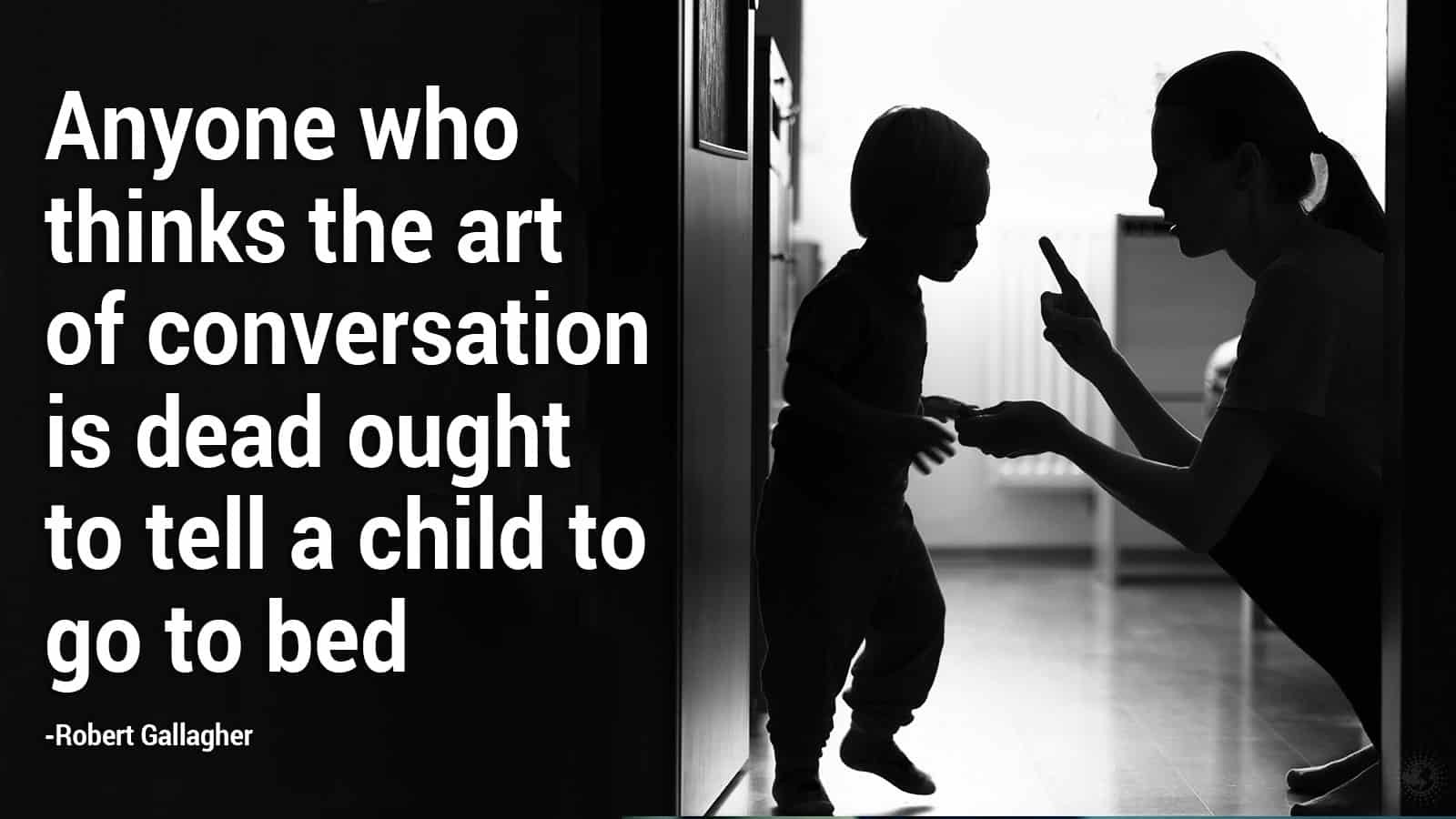Parents often expect too much and forget that their child is still growing and developing. Have you ever got angry with your kid because they made a foolish mistake or were in a bad mood? Yet, even as a grown-up, you still do the same things.
Your job is to mold these little ones into good people, and using positive feedback in their life is a great place to start. How many times have you been too harsh because you’re expecting them to act like angels?
Parenting a child is a delicate balance between disciplining them when they’re wrong and nurturing them to make good choices. Discipline was often something that was done negatively, as in corporal punishment. Now, studies show that striking a child can be counterproductive.
According to Family Education, parents who spank their children inadvertently cause insecurity. The focus on behavior is removed from what they’ve done and put on them as a person. It’s emotionally damaging, and there is a better way to get to the issue’s root.
Why Kids Need Positive Feedback?
Imagine you had a job where no one ever said anything positive or uplifting. From the time you clock in until the time you go home, you’re reprimanded, browbeat, and told what a horrible job you’re doing. How would that affect you?
Now, imagine that your parent was constantly on your back and always complaining about something you said or did. How would your everyday life be when you had no positivity put into you? Your children need you to pick them up and not tear them down.
Here are some significant reasons why positive feedback is essential for your kids.
 1. Positive Feedbacks Helps to Develop Self-Esteem
1. Positive Feedbacks Helps to Develop Self-Esteem
Self-esteem is an integral part of your personality. If you have good esteem, you will take risks and step outside your comfort zone. When your child reaches adulthood, poor self-esteem can stunt them.
They may be afraid to go out on dates, fearful of facing job interviews and settle for things that aren’t healthy because they don’t think they can get anything better. However, when you tell them how beautiful they look, praise them for an excellent job on a math test, and tell them how proud you are of their achievements, you’re building them up.
Positive feedback will fuel them to continue the great things and push them to do better. Helping your child to build healthy self-esteem is imperative.
2. It Promotes Engagement
Some parents struggle with finding something to talk about with their children, especially when they hit the teenage years. When you’re communicating about the good things in their life, they’re going to be more eager to talk to you than if you’re coming at them with negative stuff.
Sure, not all conversations will be about sunshine and rainbows, but you should make sure that you’re talking more about the positive thoughts rather than negativity. If you want to promote good engagement with your child, this is one way to do it.
3. Displaying Positive Feedback Is an Example of Excellent Parenting
How many times do you open your mouth only to hear your mother or father’s words come flying out? You learn by example, and if your parents use specific phrases or punishments styles, you often mimic them. Did you know that abuse comes in cycles, and according to Child Welfare, it often repeats itself from generation to generation?
So, if the negative stuff that your child ingests has such a profound effect, how much more significant are the positive things? Remember that the things you say and do to your children as they’re growing will be the things they do when they’re older. Even if you received abuse as a child, you could break the cycle so that your kids can have a happy and healthy life.
Give your kids the courtesy of telling them positive things, like how much they’re loved and wanted. Positivity means everything to a young, vulnerable mind.
4. Positive Thinking Can Support Behavioral Changes
No child is perfect, and there are those days when you want to run away and never look back. However, you know that this is a passing thought, and things will soon be back to normal. The issue is that you must address the behavior challenges, or they can escalate quickly.
For instance, if your child steals a candy bar at a young age, you can’t let this action go without punishment. Discipline means many different things to people, and it depends on where you live and how you were raised. Spanking a child will not teach them why stealing is wrong, and it doesn’t punish them for the action.
You need to get to the heart of the matter. Take the child to the store and make them return the candy bar to the management. When they apologize and return the item, you’re setting precedence to teach them that it’s wrong. However, once the item is returned and they’ve apologized, praise them for doing what was right.
Sure, it was an adverse action, but you can give them positive feedback when turning the wrong into a right. You’re encouraging them to do the right thing, and you’re also teaching a valuable lesson at the same time.
You don’t have to beat your kids down when they do something wrong. The goal is to correct the error and move on.
 5. Positivity Makes Their Achievements Visible
5. Positivity Makes Their Achievements Visible
If you never tell your child, they’re doing a good job and praise them. They will feel what’s the use. Even if they do a crummy job vacuuming, tell them how good they are and show them ways to improve.
It’s often the case that one child excels in school with little effort, and another child struggles to get average grades. The child who barely passes gets praise when they bring their scores to an acceptable level. Sadly, it’s the child who is on the honor roll that often gets slighted.
Kids with perfect grades often don’t get any special treatment for excelling again, as it’s what they’ve always done. However, they need and desire positive feedback from their parents. It’s nice to hear that you’ve done an excellent job, even if it seems redundant to keep telling them.
Your kids are longing for you to tell them how good they’ve done, and if you don’t tell them, it can alter their ego. The perfect child may act out to get any attention from you.
It’s Helpful to be Constructive Rather Than Destructive
Timmy hit his sister for the third time today. You’re frustrated, and time out isn’t working anymore. He’s eight years old, and he should know that you can’t hit your six-year-old sister. Some parents might hit him back to teach him how it feels, though that’s more destructive than constructive.
Other parents might yell, scream, and tell him how dumb he is for hitting a little girl. Again, this is destructive and not helping the situation. If you sit down with this child and find out why he’s behaving this way, you might be shocked at what you find.
Perhaps, his sister is pinching him when you’re not looking, and all you see is his reaction to her action. When you take your emotions out of discipline and sit down with the child, you might find a whole lot going on you had no clue about. Use each chance you get to be constructive.
Timmy should learn it’s improper to hit a girl, and he should get help if she’s doing something that agitates him. Separating them and making them play alone for a while might also be helpful. They will learn how much better playtime is when there’s more than just one.
Motivating Kids With Positive Feedback
If you want to motivate your child to do something, then you should start with praise. Nobody likes to do the dishes, but you can get more out of them with a bit of positive reinforcement. Rather than telling your child, “Tonight is your turn to do dishes, so hop to it,” you should say something like, “Sarah, you did such an amazing job on the dishes the other night, would you please do them again tonight?”
While the chore isn’t going to change, your attitude did when you assigned it. Now, you’re helping to puff Sara up a bit and letting her know that she’s a pro at dishes, and you appreciate it. If you want to motivate your children to do and be more, then choose your words wisely.
 Final Thoughts On Giving Kids Positive Feedback
Final Thoughts On Giving Kids Positive Feedback
Wouldn’t it be awesome if children came with a manual to guide you in raising them? What works for one child won’t work for another, and then there’s always the kid that’s a wild card. Think of your children as a garden where you plant things that you want to see harvested later.
If you want corn in your garden outside, you don’t plant green beans. The same philosophy holds with your kids. If you want them to grow to be positive, loving, and good parents to their children, then you must set an example for them.
Your positive feedback means more to them than any gift you could buy at the toy store or cash you can give them. Positivity is what they need in life to be motivated, have good self-esteem, and overcome obstacles.
The post 5 Reasons Every Child Needs Positive Feedback appeared first on Power of Positivity: Positive Thinking & Attitude.







 1. Positive Feedbacks Helps to Develop Self-Esteem
1. Positive Feedbacks Helps to Develop Self-Esteem 5. Positivity Makes Their Achievements Visible
5. Positivity Makes Their Achievements Visible Final Thoughts On Giving Kids Positive Feedback
Final Thoughts On Giving Kids Positive Feedback